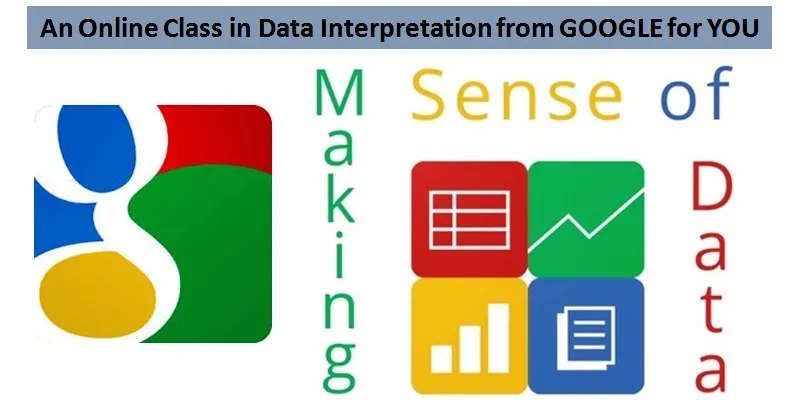Now Google has an online Data Interpretation class for you
We are moving into an increasingly data-driven world. But most of us are still stumped when we come across surveys, data and research. 'Big Data' is a commonly thrown around buzzword. Few understand data. Fewer know how to analyze it and make sense out of it. Someone has rightly noted, "Big data is like teenage sex: everyone talks about it, nobody really knows how to do it, everyone thinks everyone else is doing it, so everyone claims they are doing it..."

To help the general population make sense of data, Google has launched a MOOC (Massively Open Online Course) called 'Making Sense of Data'. Similar to any MOOC by big-name players like Udacity and Coursera, the course will be self-paced and self-driven. The course will be running from March 18- April 04, 2014 and will be taught by Google content experts Amit Deutsch and Joe Hollerstein via a series of video lectures, interactive projects, and the support of community Teaching Assistants. Users will have the option of claiming a 'Certificate of Completion' if they finish the modules and the assignment.
Data Science is certainly going to be the in-demand skill for the next decade or two. Google is well-positioned to solve the demand-supply gap. However, if one looks closely, one can deduce that Google also seems to be plugging its own Fusion Tables product which might well be the reason behind conducting the course.
In India too, online courses are picking up pace. The top three US based MOOCs, Udacity, EdX and Coursera almost take pride in the fact that the maximum number of enrolments come from India.
"Online education is an idea whose time has come. Snapdeal's move to education marketplace and Google's foray into courses validate the same," says Ravi Handa, a well-known online instructor in the test preparation space who runs his own Data Interpretation classes.
Apart from this, Google has also launched another online tool Oppia, which "is a versatile tool that enables non-technical users to create interactive online educational activities (called 'explorations') that give immediate and personalized feedback to learners."
Oppia is a free and open source software and has the following list of features:
- Learners receive personalized, customizable feedback after submitting answers
- Explorations are embeddable in any webpage
- An online analytics dashboard that allows explorations to be improved easily over time
- A full online editor GUI
- A comprehensive extension framework allowing straightforward integration of new interactions and classification rules
- Parameters can be associated with a learner in order to create a richer interactive experience
- Collaborative creation and editing of explorations with version control
- (in progress) Responsive UI for mobile devices
This tool is certainly part of Google's philosophy that delivery of online education need not be restricted to audio, video and text. However, the mention of 'Oppia is not a Google product.' might indicate that the giant wants the community to take this open project ahead.
We have a few homegrown online education tools too. Check out these:
Vedantu, that helps teachers launch their own education apps
Applied Mobile Labs, that has a voice and SMS based English learning product
Liqvid, that helps businesses develop online courses
I have personally taken Statistics 101 courses from both Coursera and Udacity and I can easily say that these courses have had the best instructors that have taught me till date. Google's MOOC is something which I certailnly an looking forward to. I'd love to come back with a feedback/progress analysis to our readers, by the end of the course.
What do you folks think about MOOCs? Have any of you taken these courses? How has your experience been? I am eagerly waiting for your responses. Do comment.







